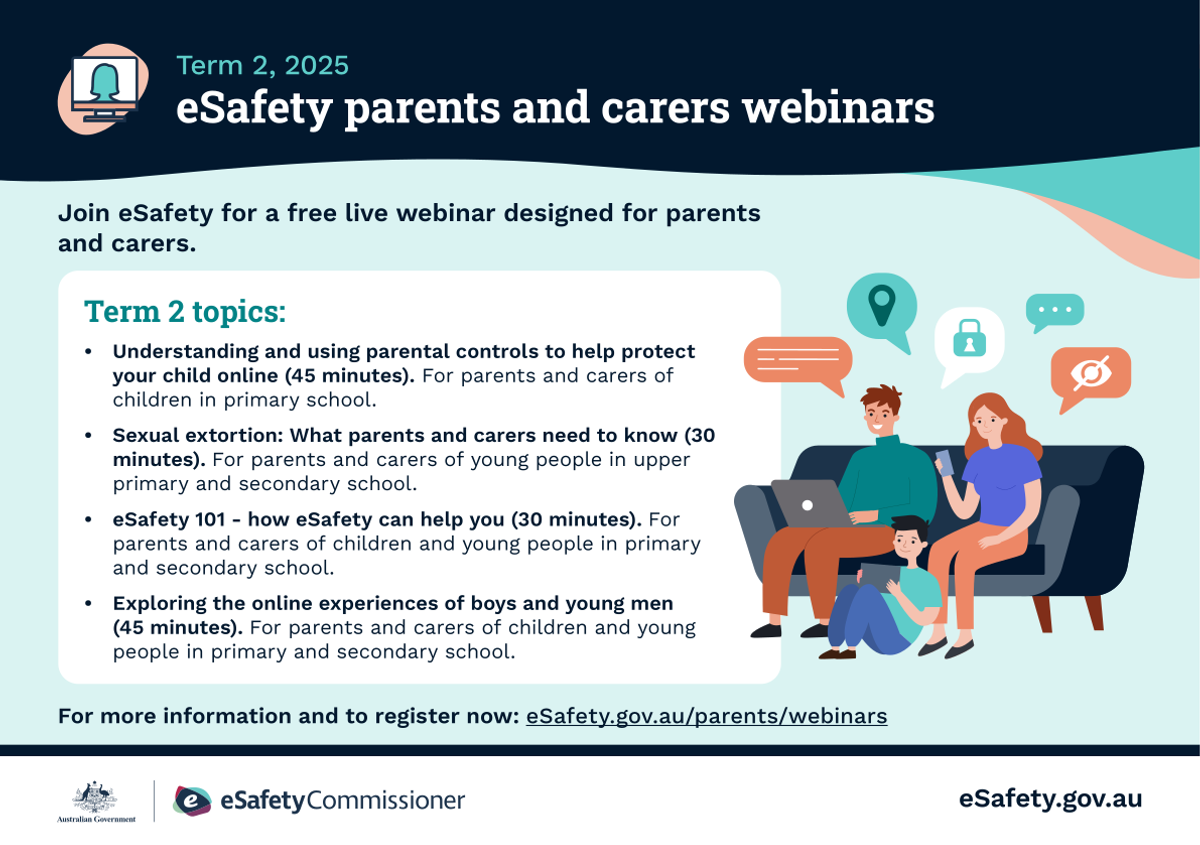Digital Technologies

How to develop strong digital habits.
Parents and carers play an important role in helping children to develop digital intelligence — the social, emotional and practical skills needed to navigate the digital world in a successful and positive manner.
The following digital intelligence principles are a great place to start with your children to ensure that they develop strong digital habits:
Promote respectful communication
Encourage your child to use the same positive manners and behaviour they would use offline, understanding that others may have different cultures, backgrounds or points of view. If it is not OK to say or do something face to face, it is not OK online.
Remind them to avoid responding to negative messages and to tell you or another trusted adult if they receive them. Tell them it is OK to report others who are not being nice.
Emphasise the positives. For example, ‘I know what a kind and respectful person you are, and it makes me so proud to see you acting the same way when you're online. You are such a great friend — I can see how much everyone looks up to you at school.’
Encourage empathy
Help your child to imagine being in someone else’s shoes, so they can relate to diverse opinions and understand what might make people behave in different ways.
For example, you might say something like: ‘I noticed that Sam seemed a bit sad when she came over yesterday. Have you noticed anything? What do you think is wrong? Would that make you sad? What can we do to help?’
Teach them to question
Encourage your child to think critically about what they see online. Teach them to ask questions so they can identify content or messages that may be misleading or exploitative.
Talk to them about ‘fake news’, or false information that is designed to look like a trustworthy news report, and how quickly it can spread on social media. Teach them to fact check news sources and do their own independent searches on issues, so they can see the variety of opinions on a particular issue and make up their own mind.
Remind them to be careful when making new friends online as people may not be who they say they are. We are increasingly seeing ‘Finstas’ (fake Instagram accounts) and other impersonation accounts. So it is important to question whether what they are seeing online from their friends is real or not. If it seems out of character, it could be from a fake account.
Alert your child to the dangers of meeting someone in person that they have been talking to online. Advise them to never arrange to meet an online friend unless a trusted adult is with them and it is during the day in a public space.
Encourage safe and responsible behaviour
Work on achieving a healthy balance in your child’s online and offline activities and set boundaries for digital device use in your home.
Remind your child of the importance of safeguarding personal information that can be used to identify or locate them.
Explain why they should be suspicious of unsolicited messages and emails, and avoid clicking on pop-up ads on websites. Some pop-ups that seem safe can lead to inappropriate sites or ask for personal or financial information.
Help them configure the strongest privacy settings on all the social media apps and sites they use. It is best that only their circle of friends can view their information, tag them in a photo or share posts. And get them to check their settings regularly as updates can sometimes change them back to the default.
Ensure your child uses strong passwords on devices and accounts, and explain the importance of not sharing passwords, even with friends.
Help them build resilience
Keep your cool if your child experiences a negative experience online. Remember, the choices they make as they navigate difficult situations can help them learn and build their resilience.
Remind your child that they can screen who they accept as online ‘friends’.
Make sure they know how to block and report users or pages on the sites they use.
If they have a negative online experience, find out how they are feeling about it, offer support and encourage them to keep things in perspective at the same time.
For example, you might say: ‘What that person has done is not OK. They must be feeling pretty bad about themselves to treat you like this. How are you feeling? Let's block them to stop their messages coming through.’
Build your child’s confidence and encourage positive ways of thinking — looking on the bright side, thinking rationally, understanding that difficult times are a part of life but there is help and support available.
To explore any of the following information further, please visit the parent section of the esafety commissioner website:
https://www.esafety.gov.au/parents
Allison King
Digital Technologies

